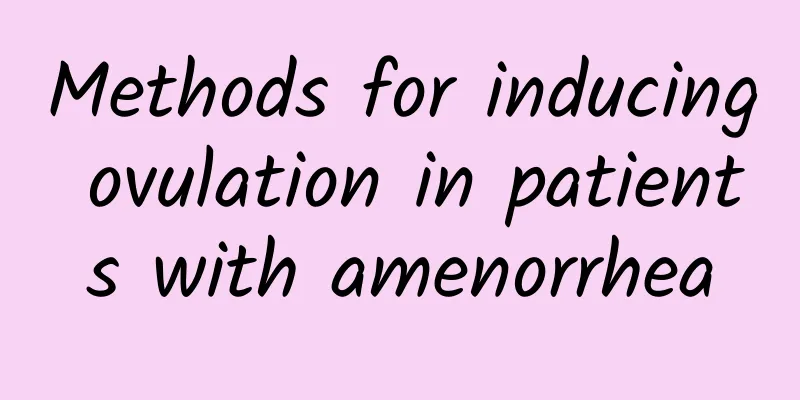Diet adjustment can help you get rid of menopausal troubles

|
Menopause is an inevitable stage in life. No matter how much you hate it, it will eventually come to everyone. So, how can we stay away from the discomfort brought by menopause? Below we will introduce in detail how menopausal women can adjust their diet, hoping to be helpful to you. Menopause is a normal physiological change after people enter middle age. It is mainly due to the decrease in hormone secretion in the body, which leads to a series of symptoms, both physiological and psychological. Women who experience menopausal syndrome are around 40 to 50 years old, and symptoms of varying severity include flushing of the face, night sweats, fever in the upper body, irregular menstruation, increased blood pressure, and occasional fatigue, dizziness, difficulty breathing, chest tightness, anxiety, irritability, or insomnia. For patients with menopausal syndrome, mild cases do not require treatment, while severe cases require hormone and other drug treatments under the guidance of a doctor. In the case of drug treatment, food regulation is used as a supplement (for milder cases, food regulation can achieve very good results). It often achieves twice the result with half the effort. So, how do menopausal women adjust their diet? Medicine believes that menopause is caused by the decline of kidney qi in the human body, and the body is often in a state of yin deficiency and yang hyperactivity. Food regulation should focus on nourishing kidney essence, strengthening the spleen and stomach, and nourishing the heart and calming the mind. Reasonable dietary arrangements can not only relieve menopausal symptoms, but also help to easily pass through menopause. Let's first divide the dietary regulation methods for women in menopause. Because of the decrease in hormone secretion, menopausal women have a disordered feeding center. Because of the decrease in activity, the body consumes less heat energy, resulting in excess heat and obesity. Obesity is a more obvious sign of menopause. Therefore, it is appropriate to reduce food intake or try to eat less high-fat foods and sugars, especially eat less fatty meat and other foods rich in saturated fat and cholesterol. Cooking oil should not be animal oil, but mainly vegetable oil, such as sunflower oil, rapeseed oil, soybean oil, etc. Vegetable oil can not only promote the metabolism of cholesterol, but also provide the human body with a variety of unsaturated fatty acids. The above is an introduction on how to regulate diet for menopausal women. I hope it will be helpful to you. Although after menopause, we will enter the old age stage. However, don't be afraid of menopause. When it comes, we can use diet to regulate ourselves to be hydrated! Menopause: http://www..com.cn/fuke/gnq/ |
<<: Dietary adjustments to relieve menopausal discomfort
>>: 6 foods to help you through menopause
Recommend
What care should menopausal patients pay attention to?
When women reach menopause, they often suffer fro...
Pros and cons of drug treatment for uterine cysts
Traditional Chinese medicine treatment of uterine...
Will rice fermented products contain fumonisin? Nutritionist: 3 things you need to know about fumonisin
Food safety issue - fumonisin Many people mistake...
What are subserosal uterine fibroids? What are the symptoms of subserosal uterine fibroids?
Subserosal uterine fibroids are a common type of ...
Can eating chocolate relieve menstrual cramps? Eating the wrong food is even worse! Nutritionist reveals: 5 dietary tips to get rid of menstrual discomfort
Many women suffer from the discomfort caused by t...
Diagnostic criteria for bacterial vaginosis
Mycorethritis is an inflammatory lesion of the ur...
What is the success rate of medical abortion?
What is the success rate of medical abortion? 1. ...
Experience in Ultrasonic Diagnosis of Congenital Absence of Vagina
There are many causes of congenital absence of va...
What is the cause of female vulvar leukoplakia
What are the causes of vulvar leukoplakia? There ...
What to drink to treat uterine fibroids? What to drink to help uterine fibroids?
What to drink to treat uterine fibroids? What to ...
What is the difference between pelvic inflammatory disease and endometritis?
Although pelvic inflammatory disease and endometr...
What are the key points to grasp in the best care of vulvar leukoplakia
Vulvar leukoplakia, a gynecological disease, is v...
What should you not eat after a miscarriage? Stay away from these 6 types of food
A woman's body is very weak after a miscarria...
The main causes of mild cervical erosion
Cervical erosion is a gynecological disease that ...
Do eggs help you lose weight? The ideal nutritional library should be eaten like this
Do you think eggs are cute and hateful? Want the ...









